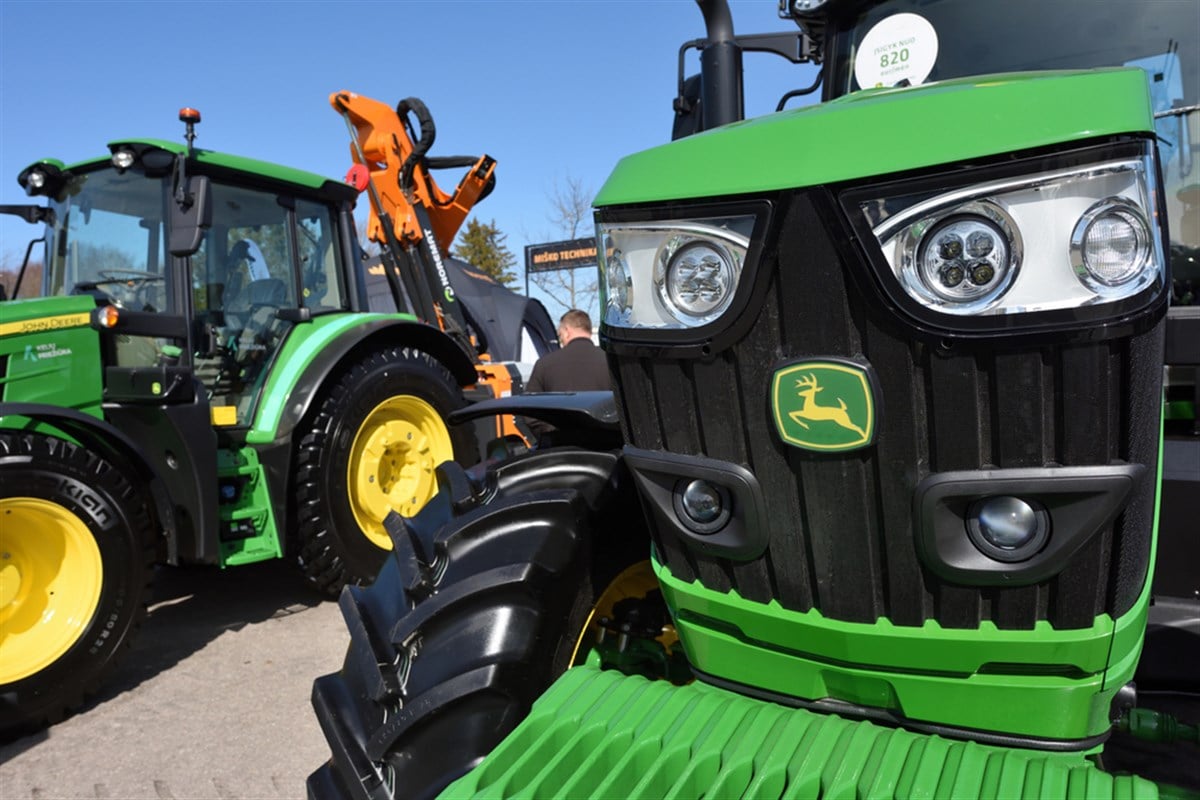
Deere & Company (NYSE: DE) shares bounced upward by more than 6% following a better-than-expected fiscal third-quarter earnings report, although the company continues to face significant industry headwinds. Cost-cutting measures have been successful insofar as the maker of agricultural and forestry equipment maintained its profit outlook for the year. However, a mixed August World Agricultural Supply and Demand Estimates (WASDE) report from the USDA could mean that Deere still has an uphill battle to come.
Deere's obstacles in recent quarters have included lackluster crop prices and increasing operational costs for many farmers, a combination that has depressed sales of the company's tractors and other machinery. While the most recent earnings report doesn't signal an end to these challenges, investors may begin to see a path forward for the nearly 200-year-old manufacturer.
Revenue and Profit Fell But Still Beat Estimates
Net sales of $13.2 billion for the quarter were down 17% year-over-year, while net income of $1.7 billion was a full 42% lower than the prior-year quarter. Despite these declines, Deere nevertheless outperformed analyst expectations. EPS of $6.29, for instance, was 35 cents higher than forecasted.
Deere CEO John May highlighted the company's "disciplined execution" and "resiliency," although each of its three primary segments logged lower shipment volumes for the quarter. One bright spot is that price realization helped to partially offset the damage done by reduced sales in both the Production & Precision Agriculture and the Small Agriculture & Turf businesses.
Profit Guidance Flat as Cost-Cutting Takes Effect
A big question investors had prior to this earnings report was whether Deere could reverse course on its dwindling 2024 profit guidance. Originally, the firm had forecast profit as high as $8.25 billion for the year, though it reduced guidance in each of the first two quarterly reports of 2024. For now, guidance remains at $7 billion, unchanged since May's second-quarter earnings call but nonetheless substantially lower than original estimates.
Deere's cost-cutting measures have been essential to bucking the trend of repeated downward guidance revisions. In the last quarter, the company eliminated more than 1,000 positions, with analysts anticipating additional layoffs. Deere noted that pretax expenses related to this downsizing were $124 million, with an additional $26 million in expenses likely to be realized mostly in 2025.
There may be some hope, then, that the biggest costs associated with Deere's employee reduction program are behind it and that it's positioned to end the fiscal year with an overall reduction in these personnel-related expenses. On the other hand, there is a limit to how many positions Deere can eliminate, and the company has so far not publicly laid out plans for other cost-cutting measures going forward, should they be necessary.
WASDE Report Offers Mixed Signals
Earlier in the week, the USDA released its August WASDE report, offering the latest supply forecasts and pricing information for a variety of agricultural commodities. Taken as a rough indicator of how prices of these commodities may behave based on supply, the WASDE gave mixed results.
On the one hand, the USDA anticipates that 2024-2025 wheat production, acreage, and ending stock (the quantity of the commodity left over at the end of the year) will be lower than previously anticipated. Lower supply could help to bolster prices, although demand for wheat has also struggled to match prior supply levels.
More troubling for the agriculture industry—and, in turn, for farmers and Deere—is the USDA's anticipation of record-high soybean and near-record corn production for this year. Soybean prices fell following the report's release on Monday.
So long as supplies remain at historically high levels, commodity prices will struggle to rebound. Lower commodity prices mean a tighter squeeze for farmers, which may lead to depressed sales for agricultural machinery producers like Deere.
The latest quarterly report shows that Deere has been disciplined in its cost reduction measures and has stabilized its profit guidance after multiple successive downward revisions. However, fundamental industry-wide issues related to lowered sales are likely to remain. Wall Street reacted positively to the latest earnings data from Deere with a single-day upward movement of more than 6%. Still, the firm remains down close to 14% over the last year.













